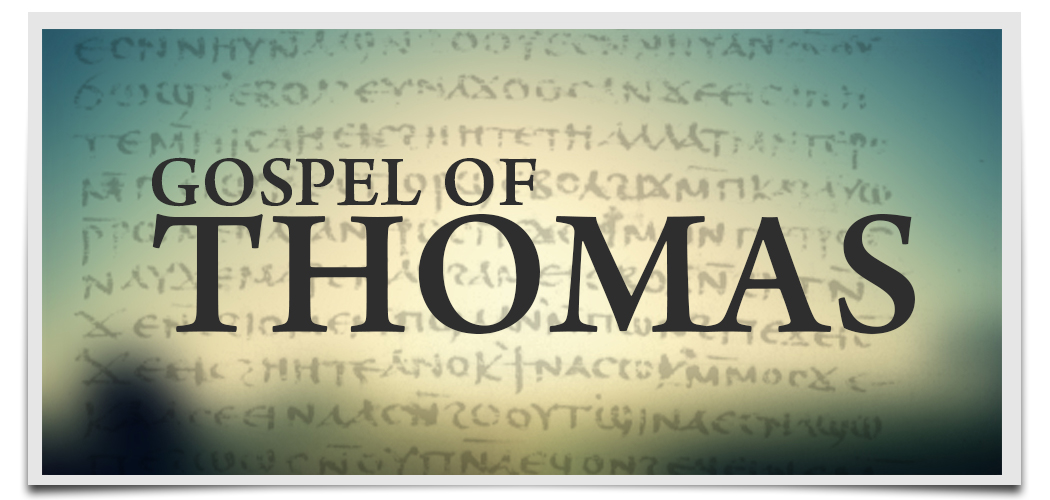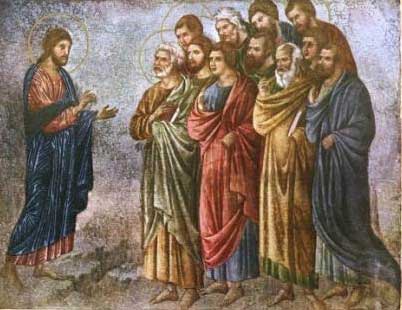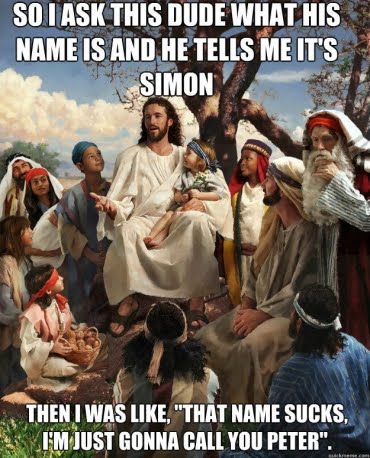More than the story of Jesus, this is the story of this communities' traditions and vision of who Jesus had become to them. The teachings and stories chosen and the way they were interpreted reflect what was important to this group, how they saw the world, who they saw themselves as, and their hopes for the future. Our vision and descriptions of others often reveal as much about ourselves as the ones we are trying to explain. We project ourselves, our experience and what we empathise with on our interpretation of others. In this study, I'm aware of that for myself as well in my visioning of this community.
...the evangelists often wrote on two levels, one the "historical" presentation of the story of Jesus, the other dealing with the concerns of the author's own day
Lössl, Josef (2010). The Early Church: History and Memory. Continuum. ISBN 978-0-567-16561-9. p. 43
THEOLOGICAL DIVERSITY OF EARLY CHRISTIAN COMMUNITIES
There were numerous disperse and diverse Christian communities at the time this Gospel was written, each unique, and as such, each with a unique vision of what the figure and teachings of Jesus had become for them.
Helmut Koester, John H. Morison Professor of New Testament Studies and Winn Professor of Ecclesiastical History Harvard Divinity School, writes the following on early Christian diversity:
Paul's conversion as an apostle to the gentiles may date as early as three years after Jesus' death. No later than the year 35, but probably already 32 or 33.... He was in Damascus when he was called, according to his own witness. So we have, already, within two years or three or five years, of Jesus' death probably Greek speaking communities outside of Palestine, very early in Antioch, but we have also the founding of communities in Samaria.... We have apparently more isolated Christian communities founded very early in Galilee. Paul's mission carried Christianity all the way over Asia Minor, present Turkey into Macedonia, into Greece, within 20 years. And at the end of that period, Paul already knows that there's a Christian community in Rome which he has not founded. http://www.pbs.org/wgbh/pages/frontline/shows/religion/first/diversity.html
L. Michael White, Professor of Classics and Director of the Religious Studies Program University of Texas at Austin, writes:
This is where we start to see a kind of proliferation of gospels ... all over the empire, and by the third and early fourth century [more] than you can actually count, and certainly more than you can easily read within a bible.
A number of years ago I read Elaine Pagels', Beyond Belief: The Secret Gospel of Thomas. In this book she explores the richness and diversity of early Christian philosophy that has recently become available since the discovery of the Nag Hammadi texts and how these diverse views and writings from the many early Christian communities were later suppressed and actively eradicated by the later Roman Church in order to impose a standardized orthodoxy. It would most likely profit my study to read her book again with eyes to how her studies relate to this community.
PLACE OF ORIGIN
Secondly, most scholars believe the community lived as part of the diaspora, one of the Jewish enclaves outside of the traditional borders of Palestine, most likely Rome, Antioch, or southern Syria.
Mark was written in Greek, for a gentile audience (that they were gentiles is shown by the author's need to explain Jewish traditions and translate Aramaic terms) of Greek-speaking Christians: Rome (Mark uses a number of Latin terms), Galilee, Antioch (third-largest city in the Roman Empire, located in northern Syria), and southern Syria have all been offered as alternative places of authorship.
DATE OF COMPOSITION
The Gospel of Mark is believed to be the earliest of the four canonized Gospels, written sometime between 50 and 70 either just before or during the Jewish Revolt and the destruction of the Temple. The NIV Study Bible gives the following on the date of composition:
Some, who hold that Matthew and Luke used Mark as a major source, have suggested that Mark may have been composed in the 50s or early 60s. Others have felt that the content of the Gospel and statements made about Mark by the early church fathers indicate that the book was written shortly before the destruction of Jerusalem. http://www.biblica.com/en-us/bible/online-bible/scholar-notes/niv-study-bible/intro-to-mark/
Marilyn Mellowes, who produced and wrote the popular four-hour series, "From Jesus to Christ: The First Christians", for PBS, writes:
While there is disagreement about where Mark wrote, there is a consensus about when he wrote: he probably composed his work in or about the year 70 CE, after the failure of the First Jewish Revolt and the destruction of the Jerusalem Temple at the hands of the Romans. That destruction shapes how Mark tells his story. http://www.pbs.org/wgbh/pages/frontline/shows/religion/story/mmmark.html
JEWISH ESCHATOLOGICAL THOUGHT
The placement of the Gospel after the First Jewish Revolt and the destruction of the Temple is an important factor in the world view of the Gospel community. They would have needed to interpret for themselves what had gone wrong and why Jerusalem had been destroyed. These events would have also increased the popularity of Jewish eschatological thought, teaching, and literature.
Delbert Burkett in his, An introduction to the New Testament and the origins of Christianity, writes:
From the outset, Christians depended heavily on Jewish literature, supporting their convictions through the Jewish scriptures.[19] Those convictions involved a nucleus of key concepts: the messiah, the son of God and the son of man, the Day of the Lord, the kingdom of God. Uniting these ideas was the common thread of apocalyptic expectation: Both Jews and Christians believed that the end of history was at hand, that God would very soon come to punish their enemies and establish his own rule, and that they were at the centre of his plans. https://en.m.wikipedia.org/wiki/Gospel_of_Mark
The Wikipedia entry for Jewish Eschatology includes the following:
In Judaism, end times are usually called the "end of days" (aḥarit ha-yamim, אחרית הימים), a phrase that appears several times in theTanakh. The idea of a messianic age has a prominent place in Jewish thought, and is incorporated as part of the end of days.
The main tenets of Jewish eschatology are the following, in no particular order, elaborated in the Books of Isaiah, Jeremiahand Ezekiel:[1]
- End of world (before everything as follows).
- God redeems Israel (i.e. the Jewish people) from the captivity that began during theBabylonian Exile, in a new Exodus
- God returns the Jewish people to the Land of Israel
- God restores the House of David and theTemple in Jerusalem
- God creates a regent from the House of David (i.e. the Jewish Messiah) to lead the Jewish people and the world and usher in anage of justice and peace
- All nations recognize that the God of Israel is the only true God
PAGAN AND HELLENISTIC INFLUENCES
The placement of the community of Mark outside of Palestine and the inclusion of Gentiles suggests that there would have been a strong influence from pagan religions and Hellenistic thought. Helmut Koester, John H. Morison Professor of New Testament Studies and Winn Professor of Ecclesiastical History Harvard Divinity School, relates:
But the other aspect is the diversity of religious movements. And that in fact early Christianity, by moving into different realms of the different universes of thought and of religion in the Greco-Roman world, adopted a lot of concepts from other religions, lots of them pagan religions, which enriched the early Christian movement tremendously. http://www.pbs.org/wgbh/pages/frontline/shows/religion/first/diversity.htmlEven if the community of Mark did live in Palestine, I would imagine that one thing this group would know in common would have been Greek or Hellenistic culhture. Alexander the Great had conquered all of the Mediterranean and the Middle East as far as present day Pakistan leaving Hellenistic culture in his wake. After his death, Palestine was part of the Selucid kingdom. The Herrads were all about a renaissance of Hellenistic culture and the Romans, taking their turn as world conquers, were also steeped in Greek culture. Everyone in the possible location of Mark's community would have been versed in Greek thought, philosophy, myth and aware of the various mystery religions.
A number of years ago I read Bruce M. Metzger's, The New Testament: It's Background, Growth, and Content. Bruce Metzger is the George L. Collord Professor of New Testament Language and Literature Emeritus at Princeton Theological Seminary and a past president of the Society of Biblical Literature and the Studiorum Novi Testamenti Societas. He devotes a large section of this book to the mystery religions and on the dying and resurrected god-man figures of Dionysis, Bacchus, and Osiris.
SOCIAL MAKE UP AND PRACTICE
What segments of society made up early Christian communities like that of the book of Mark and what did the practice of these communities look like? L. Michael White,
Professor of Classics and Director of the Religious Studies Program University of Texas at Austin, states:
What kinds of people belong to these early congregations? Who signs up? Paul's congregations are typically based in individual homes. We call those "house churches" these days. They didn't have church buildings. There probably weren't that many synagogue buildings that one could recognize. Even Jewish communities typically began in homes as well, and in these home congregations or house churches we should imagine a mix of people from across the social spectrum of any Greek city. There's the owner of the house, a kind of wealthy patron. It might be someone like Stephanus or Phoebe. Also the members of their household, family members as well as household slaves and even their clients if they were in a artisan guild. Say tent makers or merchants of some sort. We might typically expect that the household would include not only the immediate family and others around them but even the clients and business partners.... Paul seems to have recognized the opportunity that these house church congregations afforded for getting into the networks of individual relationships that afford to him access to many different people within the Greek city. http://www.pbs.org/wgbh/pages/frontline/shows/religion/first/congregations.html
Wayne A. Meeks, Woolsey Professor of Biblical Studies Yale University, contends:
So you begin to get the impression that you have quite a variety of different social levels represented in these early Christian communities. Not people at the absolutely top level; you have, with the exception possibly of Erastus, no one from the aristocratic orders - no one who would be a member of the city council. You have no agricultural slaves, are at the bottom of the hierarchy. But, in the rest of the social pyramid, everything in between, you seem to have representatives in these early Christian groups. The people who are named, whom we can identify, have the further characteristic that they seem to cross various boundaries, they're betwixt and between. In some ways, they are marked by high social status. http://www.pbs.org/wgbh/pages/frontline/shows/religion/first/congregations.html
A SECT IN THE DIASPORA
Christianity began as a relatively small sect within Judaism. As a sect they had to justify themselves to other Jews who were part of the more mainstream institutional Judaism. This was even more the case in a period of foreign occupation where religious leaders were trying to unify and purify the faith in response to oppression in hopes that God would save them. The Christian's lax interpretation towards the practice of the purity laws would have been seen as a threat.
If as we suspect, the community of Mark was part of the diaspora and living as a minority sect as part of a larger Jewish enclave in a foreign land, they would have had further pressures towards conformity. Minority cultural groups living outside of the traditional homeland of their heritage often seek to preserve their culture against the influence of the dominant culture around them. There is a strong emphasis on maintaining the most conservative and traditional elements of that identity without change and sometimes become almost cultural time capsules resistant to incorporating the changes going on in their homeland. As such, the divergent Jewish fringe cult of Christianity with their inclusion of Gentiles would have been seen as a threat.
L. Michael White, Professor of Classics and Director of the Religious Studies Program University of Texas at Austin, discusses part of the social dynamic of early Christianity as a Jewish sect:
The Jesus movement is a sect. How do sects behave? One of the things they have to do is, they have to distance themselves from their dominant cultural environment. A sect always arises within a community with whom it shares a basic set of beliefs and yet, it needs to find some mechanism for differentiating itself. So, sectarian groups are always in tension with their environment. That tension is manifested in a variety of ways - controversies over belief and practice; different ideas of purity and piety. But, another manifestation of that tension is the tendency to want to spread the message out, to hit the road and convince others that the truth is real.
http://www.pbs.org/wgbh/pages/frontline/shows/religion/first/themovement.html
Shaye J.D. Cohen in his book From the Maccabees to the Mishnah locates early Christianity firmly within the world of Jewish sectarianism. However, he does not think it remained so beyond the first century.
Cohen defines a sect this way:
A sect is a small, organized group that separates itself from the larger religious body and asserts that it alone embodies the ideals of the larger group because it alone understands God’s will . . . In the final analysis, what makes a sect a sect is its separation and exclusivity. Guilds, clubs, synagogues, and schools resemble sects in that they are small voluntary associations, but as long as they neither separate themselves from the community nor claim exclusive possession of truth, they are not sects . . . Whether as a cause or an effect of its alienation, a sect rejects or, at least, harshly criticizes the institutions and practices venerated by the rest of the society. In ancient Judaism, the targets of sectarian polemics were primarily three: law, temple, and scripture (120, 122, 123). http://www.patheos.com/blogs/euangelion/2012/01/christianity-from-jewish-sect-to-separate-religion/
CONFLICT WITH EMPIRE
The Gospel was written at a time when there is historic mention of some persecution of Christians. Nero is said to blame them for the great fire in Rome. Adhering to a religion other than the Roman state religion was tolerated as long as one also practiced the civic religion and took part in the socially expected religious ceremonies and practices. This was something that even the mainstream sects of Judaism did. However, the early Jesus communities were known for refusing to participate. A few Jews doing this could be ignored by Gentiles as a quirk of their race. But when communities with a large contingent of non-jews did this I would imagine that it would cause the greater community to be less sympathetic. This negative attention levelled against a Jewish sect could only have increased conflict between Jewish Christians and their more mainstream Jewish neighbours.
Wayne A. Meeks, Woolsey Professor of Biblical Studies Yale University, states:
Christianity, in its earliest beginnings, is part of Judaism... it is a sect, among a number of varieties of Judaism in the Roman Empire. But it is also clear that at a certain point, they develop a consciousness which takes them outside of the social orb of Judaism. They're no longer part of the local Jewish community, they're a separate community, meeting in little household groups, all over the city. And, it's apparent, at least from the time of the Emperor Nero, that outsiders also view them as distinct. So that when Nero is looking for scapegoats upon whom to put blame for the fire in Rome in 64, he zeroes in on the Christians.
http://www.pbs.org/wgbh/pages/frontline/shows/religion/first/wrestling.html
LITERARY INFLUENCES AND PURPOSE
The author may have been influenced by Greco-Roman biographies and rhetorical forms, popular novels and romances, and the Homeric epics; nevertheless, he mentions almost no public figures, makes no allusions to Greek or Roman literature, and takes all his references from the Jewish scriptures, mostly in their Greek versions.[11] His book is not history in the modern sense, or even in the sense of classical Greek and Roman historians, but "history in an eschatological or apocalypticsense," depicting Jesus caught up in events at the end of time.[12]
Christianity began within Judaism, with a Christian "church" (from a Greek word meaning "assembly") that arose either within Jesus' own lifetime or shortly after his death, when some of his followers claimed to have witnessed him risen from the dead.[18] From the outset, Christians depended heavily onJewish literature, supporting their convictions through the Jewish scriptures.[19] Those convictions involved a nucleus of key concepts: the messiah, the son of God and the son of man, the Day of the Lord, thekingdom of God. Uniting these ideas was the common thread of apocalyptic expectation: Both Jews and Christians believed that the end of history was at hand, that God would very soon come to punish their enemies and establish his own rule, and that they were at the centre of his plans. Christians read the Jewish scripture as a figure or type of Jesus Christ, so that the goal of Christian literature became an experience of the living Christ.[20]The new movement spread around the eastern Mediterranean and to Rome and further west, and assumed a distinct identity, although the groups within it remained extremely diverse.[18]Lössl, Josef (2010). The Early Church: History and Memory. Continuum. ISBN 978-0-567-16561-9. p. 43 https://en.m.wikipedia.org/wiki/Gospel_of_Mark
They were written for an audience already Christian – their purpose was to strengthen the faith of those who already believed, not to convert unbelievers.[21] Christian "churches" were small communities of believers, often based on households (an autocratic patriarch plus extended family, slaves, freedmen, and other clients), and the evangelists often wrote on two levels, one the "historical" presentation of the story of Jesus, the other dealing with the concerns of the author's own day.[22]
Lössl, Josef (2010). The Early Church: History and Memory. Continuum. ISBN 978-0-567-16561-9. p. 43
EPILOGUE
Like Socrates, Jesus left us no written record of his own. Socrates' teachings come to us only through the record and interpretation of his student Plato. Likewise, Jesus' teaching and actions are only available to us through the writings put together by the early Jesus communities some generations after his death.
The Gospel of Mark is the story of one of those communities' traditions and vision of who Jesus had become to them. The teachings and stories chosen and the way they were interpreted reflect who they were, their conflicts and concerns, who they saw themselves as, and their hopes for the future.
The fact that the Gospel is a creation of its community, colored and inspired by their unique situation and not a literal history of the words and events of Jesus does not make it less meaningful or "true". The way the stories this group told transformed them and defined them from the dominant culture, and the vision it gave them for viewing their world and living in a different way has great meaning. The truths they relate are both transcendent and eternal, extending beyond their unique situation. There is meaning here that speaks to us today and that tackles themes and perceptions that we continue to wrestle with. However, to fully appreciate that meaning and how it can speak more universally we need to better understand what these teachings and stories meant to them.



















